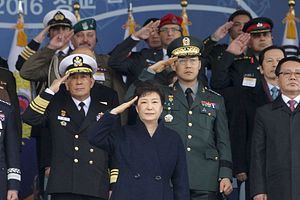Before President Park Geun-hye of South Korea (the Republic of Korea or ROK) won the country’s top political office in December 2012, she campaigned on a commitment to improve inter-Korean relations in a gradual and principled way through “trustpolitik.” She opposed paying off North Korea (the Democratic People’s Republic of Korea or DPRK) for any positive or constructive behavior. Park was clear that any type of engagement would be grounded in a firm military deterrence posture and the will to use force if pushed by the North. But at the same time she advocated a diverse array of substantive engagement tools, like family reunions, regular people-to-people exchanges (including tourism), targeted educational and humanitarian assistance for North Koreans, and the development of economic and technology training to improve human capital and societal development in the DPRK. Some of these were spelled out in her Dresden speech about a year after her inauguration.
Early in Park’s term, Foreign Minister Yun Byung-se boldly claimed that trustpolitik “is the policy that will be in place for the remainder of Park’s presidency.” He spoke too soon, since trust between the two Koreas has plummeted even lower than imagined at the outset of the presidency, and the policy itself has been jettisoned in response to the DPRK’s nuclear test and missile launches in 2016. But trustpolitik was doomed from the start because of major flaws in its conceptualization and implementation. The major shortcoming is that the policy married improving inter-Korea relations with unification by absorption. Whoever wins the presidential election in 2017 should beware of making the same error.

































